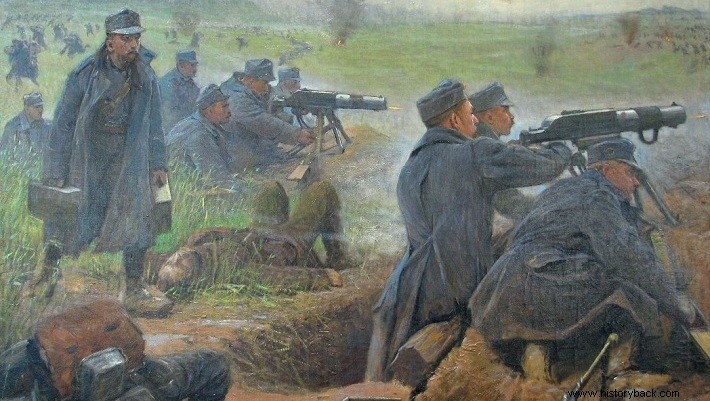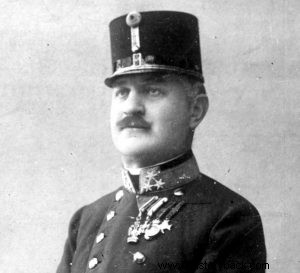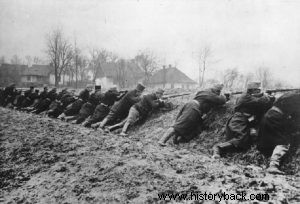
The Imperial and Royal Army (Kaizerliche und Konigliche Armee or abbreviated K.u.K.), as it had been called after a Vienna agreement with the Hungarians, had always been the mainstay of the Habsburg dynasty. However, every change was now subject to the judgment of the Hungarian parliament and things were not easy to promote.
The multinational Habsburg empire, where the German element coexisted with Hungarians, Czechs, Romanians, Poles, Ukrainians and Italians, was shaken throughout the 19th century by the rise of nationalist-separatist movements within it.
The army was the point of fusion of the ethnic groups and their attachment to the person of the venerable Emperor Francis Joseph. However, on the eve of the 1st PP, K.u.K. he was not at his best. Due to financial difficulties, but also to the Hungarian parliament, the money available for the army was insufficient.
Significant was the fact that in the Empire there was no dominant ethnic group as, for example, in the Tsarist or Ottoman Empire, where the Russian and Turkish elements, respectively, dominated. In the Habsburg state, the German element constituted, more or less, 1/3 of the population.
An attempt to change the climate was made in 1881 with the establishment of the general staff. In 1906, Franz Xavier Joseph Konrad von Etchendorf took over as leader. . Conrad, as he became known, remained in this position until 1917, with a short break.
Conrad, from the beginning, was a fan of the preventive war against Italy or Serbia. For political reasons his suggestions were not heard. Although considered a reformer, Conrad was a follower of the doctrine of blind attack, believing that the attacker owns the initiative and imposes his will on the defender.
This view of his was obviously not a priori wrong, but he himself failed to take into account the advances that had been made. In 1914 with modern artillery and machine guns in service attacking in any way regardless of terrain and enemy was pure suicide.
The Betrayal of Colonel Redle
But what undermined the Habsburg Empire's war effort from the start was the infamous Redl Affair . The gay Austrian Army intelligence colonel was blackmailed and bought over by the Russians, handing over to them all the Austrian military's defense and strategic concentration plans.
From 1903 to 1913 Riddle sold the secrets of his homeland to Russia receiving huge sums and living, literally, royally. He sold the war plans against Serbia, as well as the plan for the strategic concentration of the Austrian army in Poland (Galicia). The Russians informed the Serbs of the Austrian plans. The result was two shameful and bloody defeats of the Austrian army in 1914-15.
Redl not only handed over all Austrian plans to the Russians, but also passed on false information to his superiors about the Russian forces, presenting a picture of them that did not correspond to reality in terms of their numbers and strategic concentration. At the same time he "sold" the Austrian agents in Russia who were neutralized.
When the betrayal was revealed, Conrad decided to change the plans for the strategic concentration of the army on the Russian front (Galicia), not knowing that the plans against Serbia had also been leaked as Riddle did not speak much after he killed himself.
Conrad's original intention was to concentrate his main forces around Lemberg (present-day Lviv, Ukraine) . From there the Austrian forces could attack either between the Vistula and Bug rivers and threaten Russian, then, Poland and especially Warsaw, or move north-east towards Dubno, separating the Russian forces in Ukraine from those in Poland and defeating those meandering on internal lines.
The Redl case, however, forced Conrad to change his plans, which the Russians, as well as the Serbs, knew about. So he decided to concentrate the bulk of his forces further west than the originally predetermined concentration areas in Galicia and attack with insufficient forces in Serbia. This decision of his was of catalytic importance for the development of the First World War.

Colonel Redle.

Soldiers of K.u. K in Galicia in 1914.
